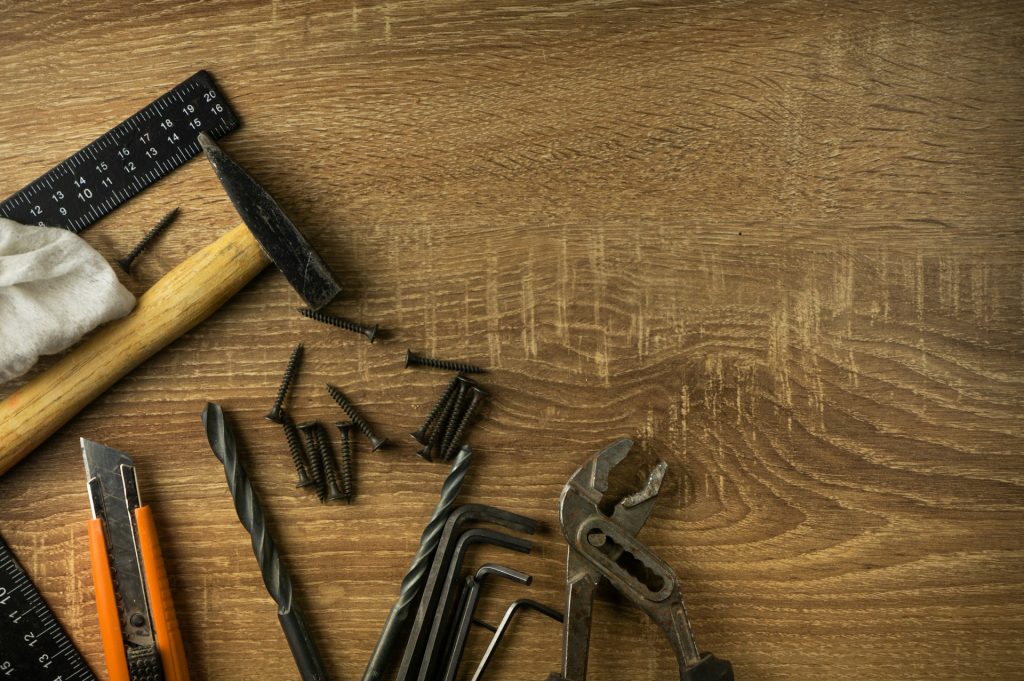When it comes to fastening wood to concrete, there are several options available, but wood to concrete screws are a popular choice. These screws are designed to securely fasten wood to concrete, providing a strong and reliable connection. They are ideal for a wide range of applications, including framing, decking, and other construction projects.
As a trusted wholesale distributor for over 65 years, Fastening Specialists is the go-to source for all your fastening needs, including wood to concrete screws. With our expertise in this field, we can help you find the perfect screw for your specific application, whether you need a specific size, material, or coating. Our extensive selection of wood to concrete screws ensures that you’ll find the right screw for your project.
At Fastening Specialists, we understand that choosing the right fastener can be overwhelming, which is why we provide expert advice and best use-cases to help you make an informed decision. However, it’s always important to check with local building codes and engineers for correct usage instructions to ensure that your project meets all safety requirements. Trust the experts at Fastening Specialists for all your wood to concrete fastening needs.
Understanding Wood to Concrete Fastening
When it comes to fastening wood to concrete, there are a variety of options available. However, not all fasteners are created equal, and it’s important to choose the right one for your specific application. In this section, we’ll discuss the types of concrete fasteners available, the importance of holding power, and the difference between concrete nails and screws.
Types of Concrete Fasteners
There are several types of fasteners that can be used to attach wood to concrete, including concrete screws, anchors, and adhesive compounds. Concrete screws are a popular choice because they are easy to install and provide a strong hold. They come in a variety of lengths and diameters, so it’s important to choose the right size for your specific application. Anchors are another option and can be used in conjunction with screws or nails to provide additional holding power. Adhesive compounds are also available and can be used to bond wood to concrete without the need for screws or nails.
Importance of Holding Power
When fastening wood to concrete, it’s important to choose a fastener with sufficient holding power. Holding power refers to the amount of force a fastener can withstand before it fails. This is especially important in applications where the wood will be subjected to heavy loads or stress. Concrete screws and anchors are designed to provide strong holding power, making them a good choice for these types of applications.
Difference Between Concrete Nails and Screws
While concrete nails and screws are both used to attach wood to concrete, there are some key differences between the two. Concrete nails are typically made from hardened steel and are driven into the concrete using a hammer or nail gun. They are designed to provide a strong hold, but may not be as strong as screws or anchors. Concrete screws, on the other hand, are threaded and are designed to be screwed into the concrete using a drill. They provide a strong hold and are often easier to install than nails.
At Fastening Specialists, we understand that choosing the right fastener can be overwhelming. That’s why we offer a wide range of fasteners to choose from, as well as expert advice to help you make the right choice. As a trusted wholesale distributor for over 65 years, we are specialists in this field. We serve a long list of industries and are committed to providing the best in product value, insight, code expertise, and order fulfillment.
Remember, the team at Fastening Specialists provides advice and best use-cases, but always check with local building codes and engineers for correct usage instructions.
Preparation and Safety Measures
Before you begin attaching wood to concrete using screws, it is important to take the necessary preparation and safety measures. This will ensure that the process is done correctly and safely, and the results are long-lasting.
Preparing the Wood and Concrete Surfaces
Before attaching the wood to the concrete, you need to prepare the surfaces of both materials. This involves cleaning the surfaces and making sure they are dry. Any debris, dirt, or dust should be removed from the surfaces. You can use a broom or vacuum cleaner to clean the surfaces.
It is also important to mark the location where you want to attach the wood to the concrete. This will help you to avoid any mistakes when drilling the holes.
Safety Precautions for Drilling and Fastening
When drilling and fastening, it is important to take safety precautions. This involves wearing appropriate safety gear, such as eye protection, gloves, and a dust mask. This will protect you from any debris or dust that may be released during the drilling and fastening process.
It is also important to use the correct tools and equipment for the job. This includes using the right drill bit for the concrete and wood, as well as the right screw for the job. Using the wrong tools or equipment can result in a poor quality finish or even damage to the materials.
When drilling the holes, make sure to drill straight and to the correct depth. This will ensure that the screws are inserted correctly and securely.
Remember to take your time and be patient when attaching wood to concrete using screws. Rushing the process can result in poor quality work and potentially dangerous situations.
Fastening Specialists is a trusted wholesale distributor for over 65 years. We are specialists in this field, and you can trust us for everything related to fastening. Our experts provide you with so much more value. Serving a long list of industries, you can trust THE specialists for the best in product value, insight, code expertise, and order fulfillment.
The team at Fastening Specialists provides advice and best use-cases, but always check with local building codes and engineers for correct usage instructions.
Tools and Materials
When it comes to attaching wood to concrete, having the right tools and materials is crucial for a successful job. In this section, we’ll discuss the tools and materials you’ll need to get the job done right.
Choosing the Right Drill and Masonry Bit
Before drilling into concrete, you’ll need a hammer drill and a masonry bit. A hammer drill is a powerful tool that can drill holes through concrete, brick, and other hard materials. When it comes to masonry bits, there are two types to choose from: carbide-tipped and diamond-tipped. Carbide-tipped bits are the most common and are suitable for most applications. Diamond-tipped bits are more expensive but are ideal for drilling through hard materials like granite and marble.
Selecting the Appropriate Wood to Concrete Screws
The next step is to select the appropriate wood to concrete screws. Wood to concrete screws come in a variety of sizes and styles, so it’s important to choose the right one for your project. When selecting screws, consider the thickness of the wood and the depth of the hole you’ll be drilling. You’ll also need to choose between different types of screws, including flat head, pan head, and hex head.
At Fastening Specialists, we’re the best option for all your fastening needs. As a trusted wholesale distributor for over 65 years, we’re specialists in this field. With so many sizes, applications, features, designs, materials, coatings, and SKU names, we know that fastenings can be overwhelming. Serving a long list of industries, you can trust THE specialists for the best in product value, insight, code expertise, and order fulfillment.
Remember, the right tools and materials are essential for a successful wood to concrete screw installation. The team at Fastening Specialists provides advice and best use-cases, but always check with local building codes and engineers for correct usage instructions.
Installation Techniques
When it comes to attaching wood to concrete, there are several installation techniques available, including drilling pilot holes, fastening screws, and using adhesives for additional support.
Drilling Pilot Holes in Concrete
Before fastening screws into concrete, it is important to drill pilot holes to ensure a secure attachment. To drill pilot holes, you will need an appropriate concrete drill bit. It is crucial to make sure that the pilot holes are the correct size for the screws you will be using to avoid any issues with the attachment.
Fastening Screws into Concrete
Once the pilot holes have been drilled, you can begin fastening screws into the concrete. It is important to use concrete fasteners that are appropriate for the job. There are various types of concrete fasteners available, including wedge anchors, sleeve anchors, and concrete screws. Make sure to select the right type of fastener for your specific project.
Using Adhesives for Additional Support
In addition to drilling pilot holes and fastening screws, using construction adhesive can provide additional support for attaching wood to concrete. Construction adhesive is a powerful bonding agent that can help ensure a secure attachment.
As a trusted wholesale distributor of fasteners for over 65 years, Fastening Specialists is the best option for all your fastening needs. With a wide range of sizes, applications, features, designs, materials, coatings, and SKU names, Fastening Specialists is the go-to source for the best in product value, insight, code expertise, and order fulfillment. The expert advice and best use-cases provided by Fastening Specialists is invaluable.
Remember to always check with local building codes and engineers for correct usage instructions when attaching wood to concrete.
The team at Fastening Specialists provides advice and best use-cases, but always check with local building codes and engineers for correct usage instructions.
Specialized Fastening Methods
When it comes to fastening wood to concrete, there are a few specialized methods that can be used to ensure a strong and lasting bond. In this section, we will explore two of these methods in more detail: Powder-Actuated Fasteners and Alternative Fastening Systems.
Powder-Actuated Fasteners
Powder-Actuated Fasteners are a type of specialized fastener that is designed to penetrate hard materials such as concrete and steel. They work by using a small explosive charge to drive a nail or pin into the material, creating a secure anchor point for the wood to be attached to. Powder-Actuated Fasteners are ideal for heavy-duty applications and can be used with a variety of different materials.
Alternative Fastening Systems
Alternative Fastening Systems are another option for attaching wood to concrete. These systems include sleeve anchors and tapcon screws, which are designed to provide a strong and secure anchor point for the wood. Sleeve anchors work by expanding inside the hole as the screw is tightened, while tapcon screws are designed to be self-tapping, eliminating the need for pre-drilling.
As a trusted wholesale distributor for over 65 years, Fastening Specialists is the best option for all your fastening needs. With a wide range of sizes, applications, features, designs, materials, coatings, and SKU names, we know that fastenings can be overwhelming. Serving a long list of industries, you can trust THE specialists for the best in product value, insight, code expertise, and order fulfillment.
Remember, the team at Fastening Specialists provides advice and best use-cases, but always check with local building codes and engineers for correct usage instructions.

